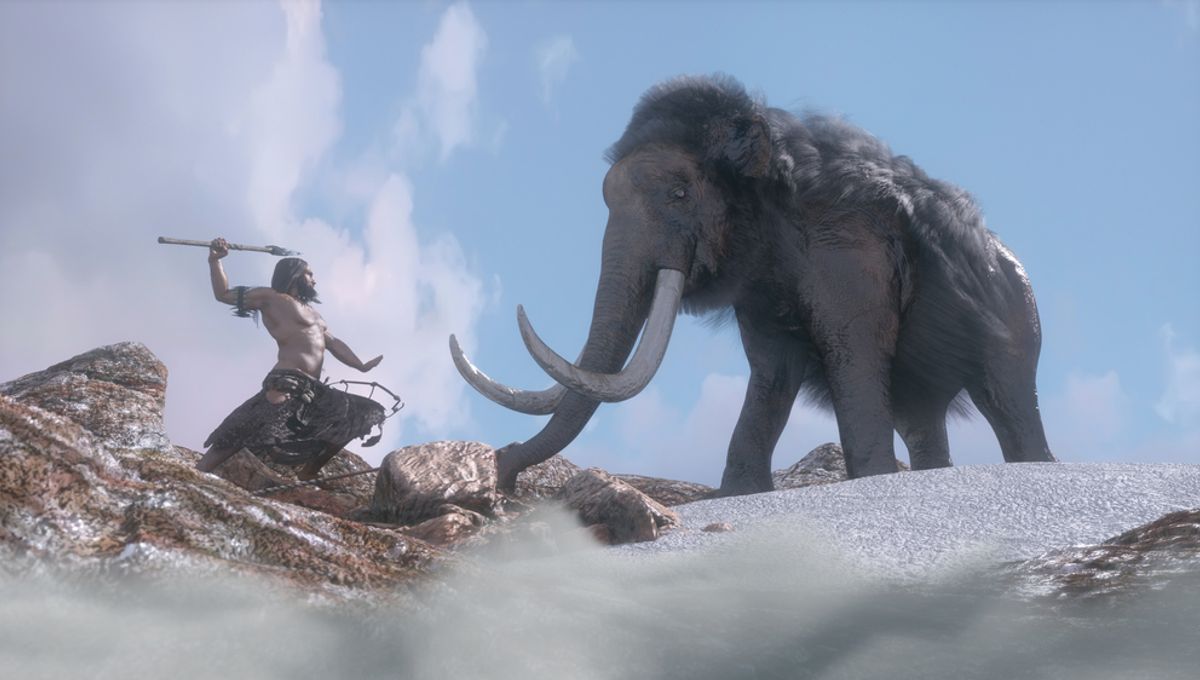
New research has suggested that people with genes inherited from Neanderthals were at a higher risk of falling seriously sick with COVID-19 during the first devastating surge of the pandemic in 2020.
Neanderthals fell into extinction some 40,000 years ago, but their genetics still live on in today’s modern human population thanks to rampant interbreeding in prehistoric times. Genetic research has shown that most people with ancestry outside of Africa have about 2 percent Neanderthal DNA in their genome.
These lingering genes still how an impact on populations today. Other studies have linked the Neanderthal’s genetic legacy to a myriad of health concerns, from alcoholism and depression to obesity and problems with blood clotting.
In this latest study, scientists at the Mario Negri Institute for Pharmacological Research in Italy found that people with certain portions of their DNA inherited from Neanderthals were at a higher risk of severe COVID-19.
The new research looked at nearly 10,000 people in Bergamo, part of the Lombardy region of Italy that was severely hit by the first wave of the COVID-19 pandemic in the early spring of 2020. As expected, they found that several genes were closely associated with people becoming “gravely ill” with COVID-19, often requiring hospitalization.
Notably, at least three of the genes belonged to a group of variations, known as a haplotype, in DNA that were inherited from Neanderthals. These variants affected the expression of CCR9 and LZTFL1, two genes known to be associated with immune response.
This is similar to the findings of previous studies that have investigated the link between Neanderthal ancestry and COVID-19 risk.
Up to 33 percent of people who developed life-threatening COVID-19 in Bergamo had the Neanderthal haplotype, Giuseppe Remuzzi, study author and director of the Mario Negri Institute, told the Wall Street Journal. Meanwhile, Remuzzi explained that the Neanderthal haplotype was significantly less common in people who experienced a mild or asymptomatic COVID-19 infection.
There are plenty of other established factors that can increase the risk of severe COVID-19, most notably old age and underlying health conditions like diabetes.
Nevertheless, it’s still not crystal clear why the Lombardy region of Italy was so severely hit by COVID-19 in its initial surge. One theory is that it could be a consequence of Italy’s de-centralized healthcare system, which has seen a rise in private hospitals in the Lombardy region.
Whether or not the Neanderthal genes played a role in Lombardy’s plight is uncertain as it’s not known if the region has a significantly higher Neanderthal ancestry than other parts of Europe. On an individual level, however, it is becoming pretty well-established that having Neanderthals far back in your family tree can make a battle with COVID-19 all the more risky.
The new study was published in the journal iScience.
Source Link: Neanderthal Ancestry May Make People More Vulnerable To COVID-19